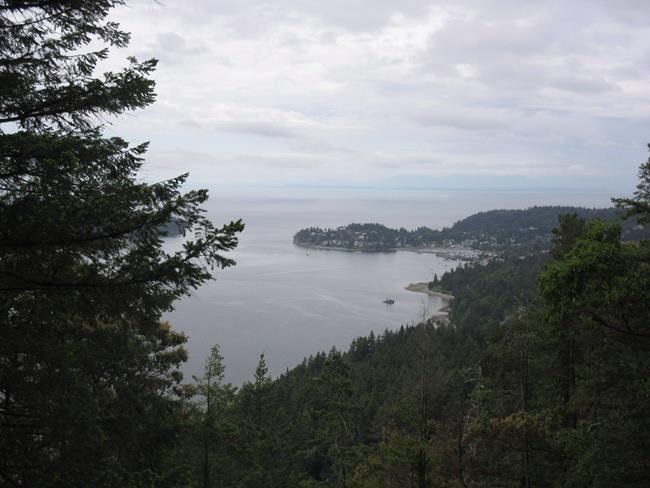SECHELT, B.C. — Staff at Batch 44 Brewery and Kitchen in Sechelt, B.C., know how to weather a storm without falling flat.
After opening in February 2020, they made it through the COVID-19 pandemic and are now preparing for their latest challenge — running a brewery without water.
"We keep getting the punches but we keep getting back up," general manager Mark Reed said in an interview.
The brewery is one of many businesses and amenities on the Sunshine Coast to be told to stop using all treated drinking water as of 11:59 p.m. Tuesday due to severe drought.
The Sunshine Coast Regional District, District of Sechelt and shishalh Nation have declared a state of local emergency as the system that supplies water to about 90 per cent of the homes and businesses in the Sechelt area is at "imminent risk" of running dry.
The brewery voluntarily stopped making its beer a few weeks ago in an effort to save water and has now stopped canning beer, which requires water as part of the cleaning process, Reed said.
Kegs of the brewery's popular lager will likely be gone in a couple of days, but after a summer of brewing, they're not completely tapped out yet.
"It just becomes that situation where people just have to drink the other beers that we have in stock and hopefully everyone's OK with that," Reed said.
The regional district says the Sechelt Aquatic Centre will be closed and a water-bottling business, several breweries and cideries, and a number of concrete, asphalt and gravel businesses are also among the non-essential commercial water users covered by the order.
It says water must be saved for residents, the local hospital and fire protection, but the district's general manager of infrastructure services said no one should panic.
Remko Rosenboom said there is enough water in the Edwards Lake and Chapman Creek system to last until mid-November and work could begin within days to upgrade the siphons taking water from the deepest points of the lake, potentially adding several more weeks of water reserves.
The Sechelt area usually records about 200 millimetres of rain between July and October, but has received less than 10 mm, pushing the entire Sunshine Coast and several other B.C. regions to Level 5 drought conditions, the most severe on the province's scale.
"We are not in a panic situation, yet," said Rosenboom.
"This state of emergency has been declared to allow us to restrict the uses (by non-essential commercial water users) and it's all with intent to ensure we are not getting into a state where we have to panic," he said.
Amid the hot, dry conditions, the shishalh Nation has banned the use of open burning and fireworks.
Chief Warren Paull said an estimated 20 millimetres of rain is expected on Friday along with another eight to 15 millimetres on Sunday.
"Right now the ground is basically a very dry sponge," he said.
In a statement, the Sunshine Coast Regional District said it may take weeks for the required 150 millimetres of rain to fall to completely recharge the watershed and ease restrictions.
The regional district has asked for permission to reduce flows in Chapman Creek, something Rosenboom says can be done without harming fish.
The district is still waiting for a response.
While the community hopes for rain, Reed said losing out on brewing and canning time is a detriment to the business but it will likely be a week or more before he has a clear picture of the financial impact of the water restrictions.
But the community has been supportive through the pandemic and he expects the same in this situation, he said.
"There are a lot of businesses on the coast that are going to be affected with these water restrictions. So I think the community understands it, they already know the negative impact it's having."
— With files from CKAY
— By Ashley Joannou in Vancouver
This report by The Canadian Press was first published Oct. 18, 2022.
The Canadian Press



